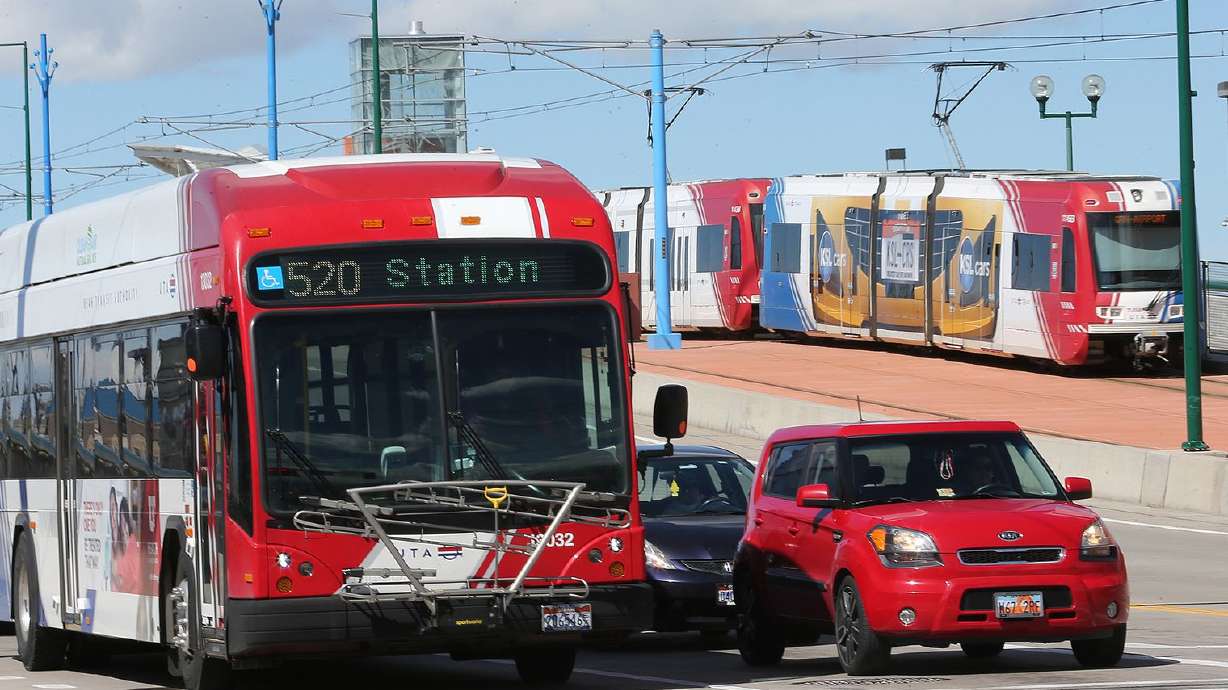Estimated read time: 2-3 minutes
This archived news story is available only for your personal, non-commercial use. Information in the story may be outdated or superseded by additional information. Reading or replaying the story in its archived form does not constitute a republication of the story.
SALT LAKE CITY — Parent-teacher conferences, job interviews and medical appointments are just some of the things impoverished Utahns frequently miss because of problems with transportation. The Utah Transit Authority wants to change that.
Starting in February, a pilot program will expand access to public transportation by offering 30-day electronic fare cards to public schools, nonprofits and other community organizations at 75% of normal cost. The organizations can then give the cards to low-income clients for free.
“We wanted something to lessen the burden of transportation,” said Carlton Christensen, chairman of the UTA board of trustees. Christensen proposed the idea last January. “For this particular portion of our community it’s something that we think will have value.”
The pilot program will be in effect anywhere UTA operates, which includes Salt Lake, Davis, Summit, Tooele, Utah, Box Elder and Weber counties.
UTA has experimented with similar programs in the past, including one that issued discounted electronic fare cards to homeless support agencies. Now the transportation agency hopes to expand access to anyone struggling to afford bus or TRAX fare.
“It’s a pretty broad umbrella,” said Christensen, who acknowledges there are still questions surrounding the initiative. “One of the reasons we’re doing this pilot program is we don’t know all that’s under that umbrella.”
Often they’re having to make some decisions about how many job interviews based on how much (bus) fare they have for that day.
–Carlton Christensen, UTA board of trustees
Organizations that wish to take part in the pilot program will operate under a contract that takes much of the administrative burden away from the UTA. They can decide who qualifies for the cards, order them in advance and track how often the recipients use public transportation. If the organization thinks someone is abusing the program, they have the ability to turn passes off.
The pilot program will end in June 2021, giving UTA a full school year to identify any logistical problems. Until then, the number of organizations and individuals who will participate is unknown.
The program’s impact on UTA’s revenue is also unknown, although Christensen doesn’t think it will be significant.
“A lot of our operating costs, for the most part, are fixed,” he said. “Adding a few more riders on the bus doesn’t add a lot of incremental cost.”
In his years on the Salt Lake City Council and as a board member for Shelter the Homeless, Christensen said he saw the impact that public transportation, or lack thereof, can have on impoverished Utahns.
“Often they’re having to make some decisions about how many job interviews based on how much (bus) fare they have for that day,” he said. “That transportation hurdle is often pretty prevalent.”








